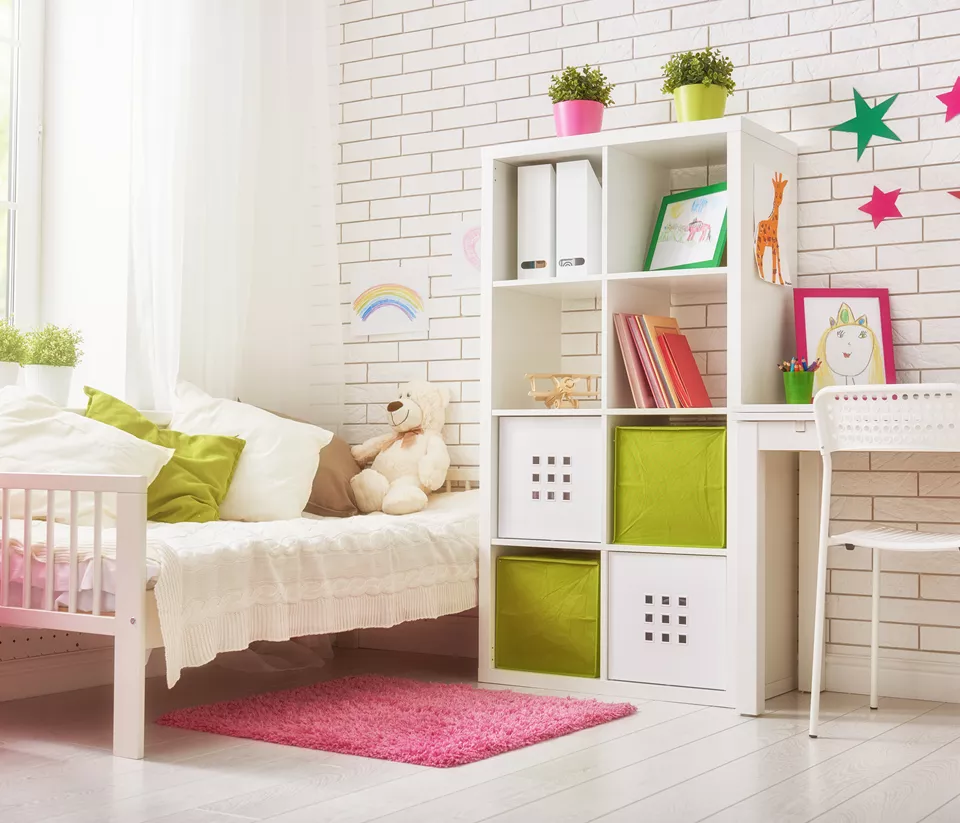Why is a spare room required to foster?
It’s a requirement that children over the age of 3 have their own bedroom in the foster home – and it’s incredibly important for the child in your care and your own family too.
One of the most common things we’re asked is, ‘Do you need a spare bedroom to foster?’, often followed by ‘Why?’. The answer is yes, you must have a spare bedroom to foster, and there are many important reasons for this.
Not only is it one of the rules set out within the Fostering Services National Minimum Standards – a regulatory framework that aims to protect the welfare and safety of children in care – but also provides so many crucial benefits to everyone within the foster home.
Before we go into the benefits, we ask you to put yourself in a child’s shoes to understand the true importance of a spare bedroom in foster care – you’ve been taken away from your birth family and placed into a completely new environment with people you’ve never met. How would you feel if you were made to share a bedroom with a complete stranger? Would you feel safe and secure? Would you feel like the bedroom is just as much yours as the person you’re sharing it with? Or would you feel like you’re intruding and not able to truly settle?
While we understand that the spare bedroom requirement is a barrier for many people who’d make fantastic foster parents, we see the difference it makes for everyone in the foster home…
Benefits to children in care
- In the early days, they’re in a strange house and may be feeling uncertain, so just having this little space that’s their own can mean a lot to them.
- It’s a key part of their experience and a nice, welcoming room can really help them gain confidence.
- Helps them feel safe and find their feet – their bedroom is a refuge and a space they can use to study, play or just be on their own for a while.
Benefits to the foster family
- Helps foster parents set boundaries, including bedtimes, so this room is a really important space for everyone.
- Minimised disruption to your own children’s routine as a foster child adjusts to their new life in care.
- Offers privacy and security to your own family too.
Frequently asked questions
Do you need to own your home to foster?
No, you don’t need to own your home to foster. We have many families living in rented accommodation. You’ll just need to have permission from your landlord to foster.
Can you foster if you have pets?
Absolutely – in fact, we find that animals can help children to settle into their new environment. We do need to check that they won’t pose any risk to children though and our pet questionnaire will help us to determine this.
We cannot accept any applications from anybody who has a banned breed in the UK as part of the Dangerous Dog Act.
Who can become a foster parent?
Almost anybody can apply to become a foster parent – the only initial requirements are that you’re over 21 years old, you have the legal right to work in the UK and that you have a spare bedroom that’s always available to a child in your care. Of course, you’ll also need to be kind, caring and dedicated to making a difference to a child.
Other than that, we welcome applications from people from all backgrounds, religions and ethnic groups. You can be gay, straight, bisexual or transgender, single, married or cohabiting. We also support foster parents with disabilities and health conditions, who are able to meet the needs of children in care.
So if you’ve ever wondered whether you could foster – we can’t encourage you enough to take the first step and speak to our friendly team.
Speak to our team
Ready to take your first step into fostering? We’re here to support you on your journey…
Enquiry
Please make sure you read our terms and conditions because you’re agreeing to them by submitting an enquiry. It’s also worth reading our privacy policy and cookies policy so you understand how we collect and use your personal data. This site is protected by reCAPTCHA and the Google Privacy Policy and Terms of Service apply.
Can’t find what you’re looking for?
By Phone
One of our team is available to talk to you over the phone to answer any of your fostering queries.
By Email
You can get in touch by filling out our online enquiry form with any queries that you may have.
Visit an office
Find contact details for your local office team. We’re always happy for you to pop-in and chat.
